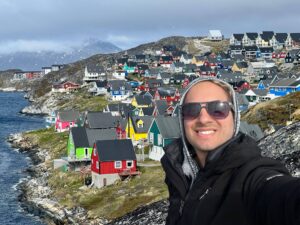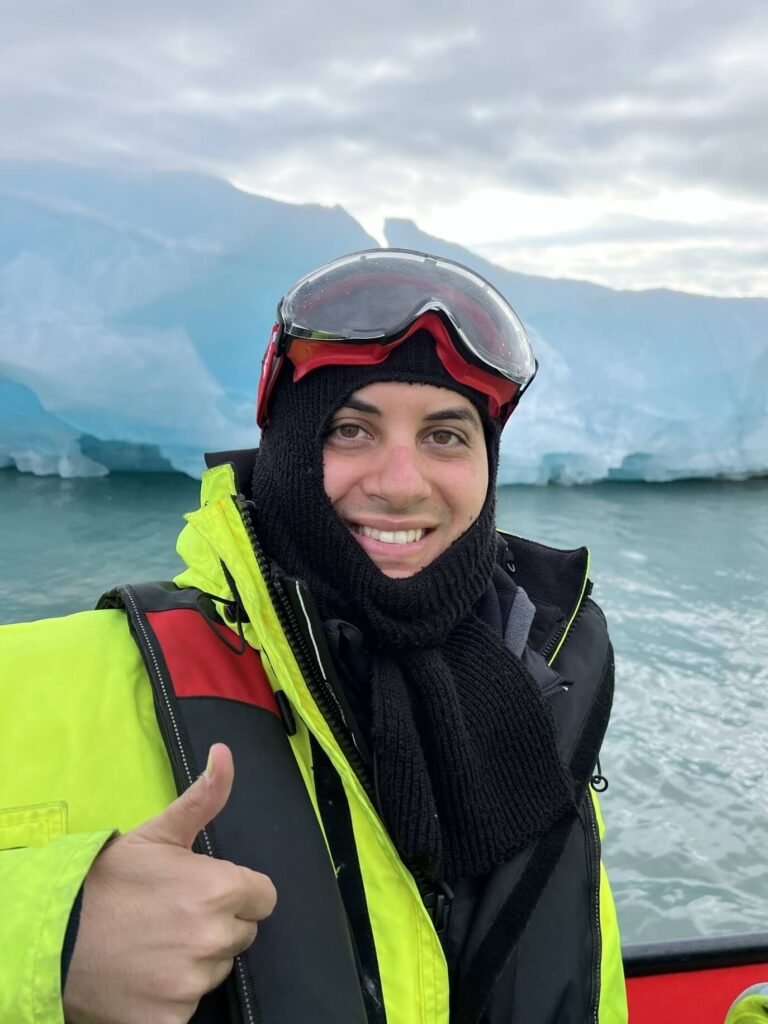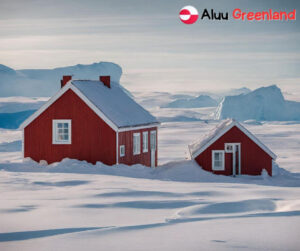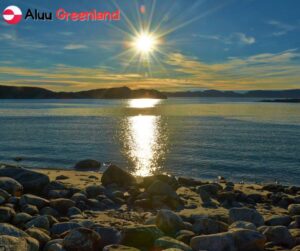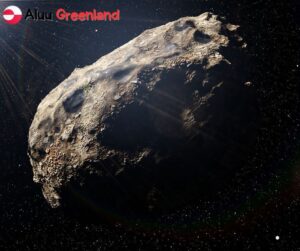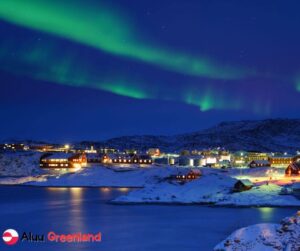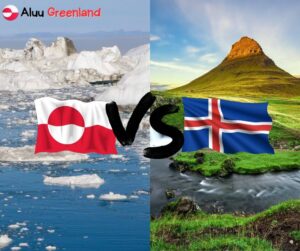If you’ve ever been curious about the origin of Greenland’s unusual name, you’re not alone.
Even though it is an icy landmass in the Arctic Ocean, and much of it is covered by mile-long sheets of ice year-round, Greenland has mysteriously earned its moniker from early explorers who first encountered this remote destination centuries ago.
Despite popular belief, many experts believe there is far more to why Greenland has bestowed such a seemingly ironic title than simply being one part of a mistranslation or error.
In this blog post, we’ll summarize all the evidence surrounding why Greenland got its name so readers can gain insight into this mysterious and fascinating piece of history.
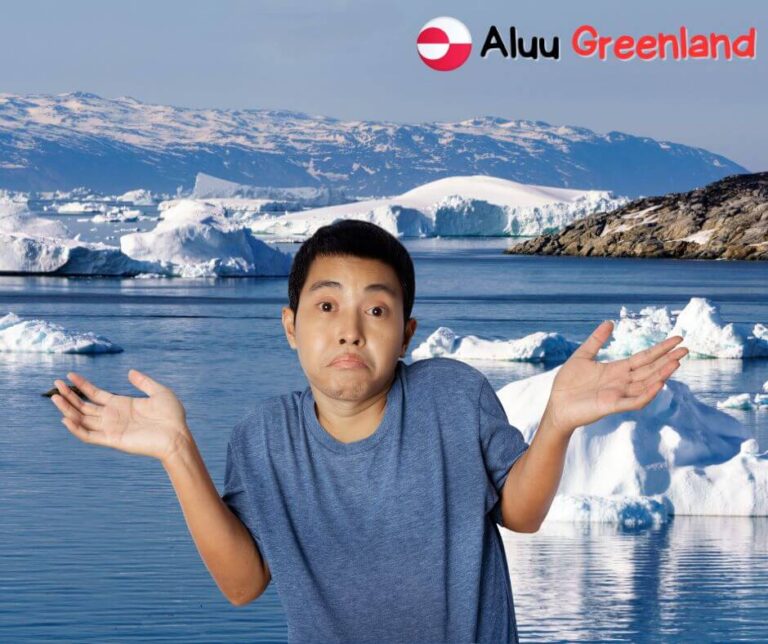
The Viking discovery of Greenland
Ah, the Vikings. Those intrepid explorers sailed the seas and discovered new lands.
Including, of course, Greenland.
According to the Icelandic sagas, When Erik the Red stumbled upon the island, he probably thought it more like an “Icy Wasteland” than “Greenland.”
But hey, “Greenland” sounded catchier, so it stuck. Regardless of its name, though, the Viking discovery of this tundra was a milestone in their history and helped to shape the world we live in today.
So let’s give a hearty skál to those brave seafarers who dared to explore the unknown!
How Erik the Red named the land “Greenland”
Many centuries ago, Erik the Red explored the lands beyond his native Iceland.
After discovering a vast land to the west, Erik knew he needed to convince his people to join him on this new adventure.
The only way to do so was to make this new land sound enticing, even though the land was covered in ice and snow.
Using his cunning, he deliberately named the land Greenland, hoping that his fellow Vikings wouldn’t be able to resist the lure of a green paradise.
Thus, Erik, the Red, created a name that would go down in history, still captivating people’s imagination today.
As someone who works as an online marketer, Erik the Red wasn’t just one of the first people to settle in Greenland and one of the first to visit North America; he was also the first great marketer to understand the power of a good name and its ability to influence people’s behavior.
The reason behind this ironic name choice of Greenland
Despite its name, Greenland is not the land of greenery and lush forests.
The irony of its name is quite striking once you set foot on the icy terrain.
So, how did Greenland end up with such a misleading name?
According to legend, a Viking explorer named Erik the Red gave it this name in hopes of attracting settlers to the area.
He had recently been banished from Iceland because of a murder, so he wanted to start a new colony; he figured a name like Greenland would entice people to join him on this seemingly promising land.
Little did he know, generations of people would be scratching their heads over this peculiar name choice.
However, maybe we should cut Erik the Red some slack because, after all, “Icy Wasteland” probably wouldn’t have garnered many eager volunteers.
But honestly, I do think that Iceland and Greenland need to switch their names.
Well, I guess the name “Iceland” was already taken, ah? So Erik the Red just had to be creative.
Maybe the name is not ironic after all.
According to recent scientific research, Greenland may have been much greener in the past.
The warmer climate during the Medieval Warm Period allowed trees and other vegetation to grow, explaining why Erik the Red opted for such a hopeful name.
But we are talking about more than 2 million years ago, so Erik the Red is unlikely to know about this period.
Why is Greenland called Greenland and Iceland Iceland?
The name Greenland is a combination of an error and wishful thinking by Erik the Red, who hoped to appeal to potential settlers with the promise of a green land.
On the other hand, Iceland got its name because of a different reason – and just like Greenland, Iceland has a nice story behind the name:
It is believed that a Norseman named Hrafna-Flóki, the first to sail to Iceland, saw the island and decided to call it “Iceland” because of the Ice fjords and the icebergs he saw there.
He also thought to use the name as a warning so other potential settlers would know what kind of climate they were dealing with.
Did Vikings name Iceland and Greenland?
Erik the Red discovered Greenland in 986 and named it so because he hoped that its name would encourage people to settle there.
Hrafna-Flóki was the first explorer to sail to Iceland, where he found perfectly formed icebergs and icy fjords, so he decided to call the island “Iceland”-
But he wasn’t a Viking like Eric the Red, but a Norseman from Norway.
Both of these men are responsible for the names of Iceland and Greenland, though Erik the Red’s name was more influenced by wishful thinking than Hrafna-Flóki’s more practical approach.
The legacy of Erik the Red
Erik the Red’s legacy lives on today through his choice of name for Greenland.
It may have been ironic, but it certainly succeeded in bringing settlers to the shores of this icy island.
And while Erik the Red didn’t find the lush green paradise he had hoped to find, he did leave us with a name that has become ingrained in our collective understanding of geography.
But besides that name, Erik is one of the most famous Vikings from the Norse Sagas:
He is the father of another famous explorer, Leif Ericson, the first European to land in North America-
Yeah yeah, many, many years before Christopher Columbus!
Eric was also the founder of one of the longest-lasting Norse settlements in Greenland-
You can still see the ruins of Brattahlid, the settlement he founded, to this day.
You can quickly get there by visiting the city of Qassiarsuk in South Greenland.
It’s funny because it’s a small settlement with a population of 39 people-
And I had to visit there during my big trip to Greenland, and when people asked me, “Why should you go to this remote place?” So I just said, “Because Erik the Red went there a thousand years ago, and I want to follow in his footsteps.”
You can imagine how they looked at me! But who cares? I had a great time there and was so happy to find out there’s a giant statue of Erik the Red in Qassiarsuk too!
So if you ever have the chance, don’t forget to visit Qassiarsuk and see Erik the Red with his faithful followers!
And let’s hope that Greenland and Iceland won’t switch their names anytime soon. I mean, they already had their names for centuries
So as you can see, Erik, the Red’s legacy lives on in more ways than one!
In conclusion
So the next time you hear someone scratching their head about why Greenland is called Greenland and Iceland is called Iceland, you can thank Erik the Red for his creative name choice.
He may have been wrong about what he thought he was getting into, but his legacy still lives on!
And if you ever get a chance to visit Greenland or Iceland, take advantage of it- it’s worth the journey.
Who knows? Maybe you’ll find some inspiration from Erik the Red as well!

